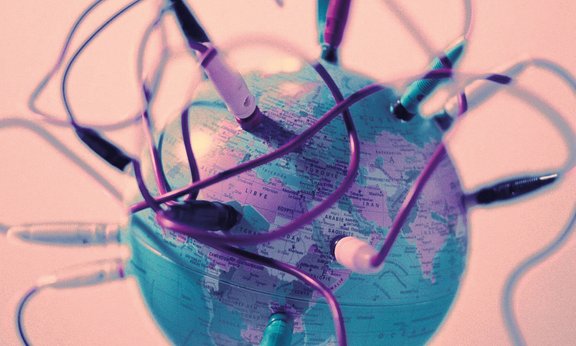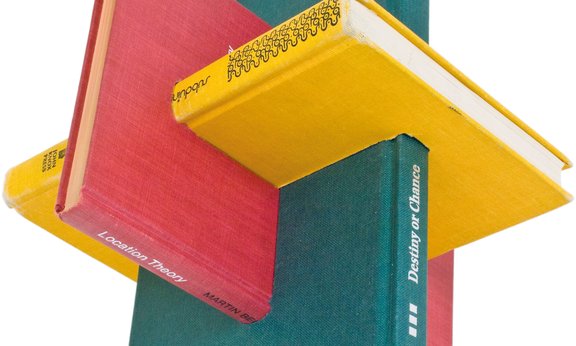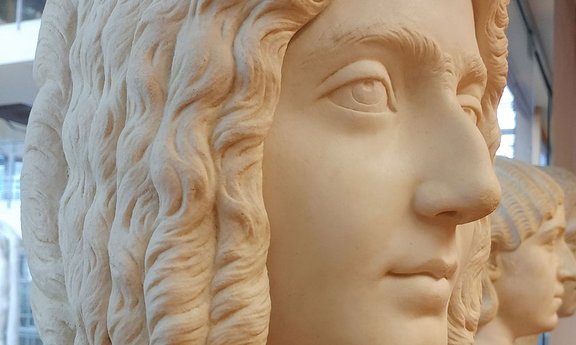Bachelor’s Programme Translation Studies
Would you like to acquire methodological and theoretical knowledge and cultural studies skills in the field of translation and interpreting?
The students of the Bachelor’s Degree Programme in Translation Studies gain basic theoretical and methodological knowledge and practical skills in the area of transcultural communication. They learn translating and interpreting in the languages offered at the Institute for Translation Studies.
Please note: the language of instruction for this programme is German.
Study Code
UC 031
All studiesStudent advisory serviceSupplementary Programme
FAQ
Graduates are able to elaborate, evaluate and implement scientific developments in the fields of translation, cultural science and foreign languages and to apply them in interdisciplinary contexts. They possess scientifically well-founded theoretical and methodical problem-solving skills as well as mental, communicative and technical key competences.
The Bachelor's Programme Translation Studies serves to train experts in intercultural communication and leads to a first university degree in general translation of the languages offered at the Institute of Translation Studies. In addition to foreign-language, cultural-scientific and translational skills, the competences required for professional activity in the field of transcultural communication also include general key competences:
- mental skills (reflection, abstraction, independent further education)
- social skills (cooperation, communication)
- technical skills (research, use of technical equipment)
Detailed educational goals are the acquisition and development of the following competences:
- safe use of experession in the working languages
- methodical and theoretical knowledge for targeted problem-solving in terms of translation and interpretation
- ability to independently develop a scientific or practical problem with subject-specific and/or job-related emphasis
- knowledge of the cultural contexts and characteristics relevant for translation and interpretation
- knowledge of current professional work equipment and translation technologies
Experts in intercultuaral communication are to be found in a wide range of activities and careers: translation agencies as well as international enterprises, public and private institutions, national and international organisations, media, tourism businesses, non-governmental organizations, migration and integration institutions.
Graduates tracking: Shows which occupational fields students enter after graduation
Faculty of Language, Literature and Culture Department of Translation Studies Examination Office Information for students with disabilities
Curriculum
From the field
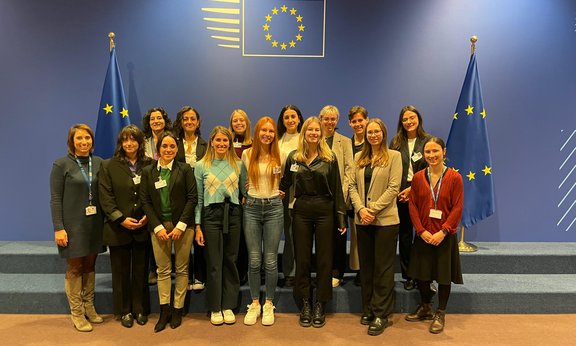
Zwischen Frites & Fachterminologie – Study Visit in Brüssel
775 km Zugstrecke, 31 km Fußmarsch, ein vierstöckiges Appartement, sieben besuchte Sehenswürdigkeiten, zwölf wissbegierige Studentinnen, vier Sicherheitskontrollen, drei Sitzungssäle, drei Portionen Frites Belges und viele aufschlussreiche Gespräche mit Beamtinnen – das war der Study Visit des Instituts für Translationswissenschaft (INTRAWI) zum SCIC in Brüssel im November 2023.

Popsong-Übersetzung und Phonomusicology am INTRAWI
Am 11.01.2024 hat Christina Richter Ibáñez der Universität Frankfurt am Main am Institut für Translationswissenschaft (INTRAWI) einen Online-Vortrag zum Thema „Popsong-Übersetzung und Phonomusicology: Strategien und Klanganalyse“ gehalten. Der Vortrag war Teil der Ringvorlesung Musik – Sprache –Translation von Ass.-Prof. Dr. Marco Agnetta.
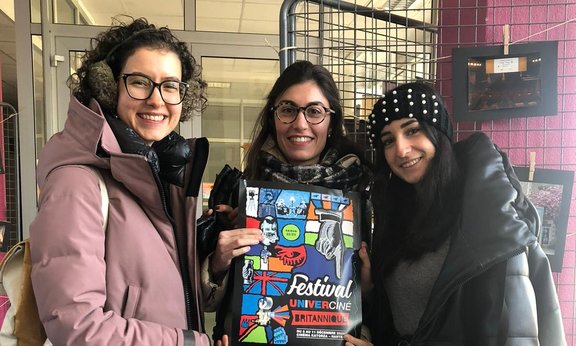
EUniverCiné in Nantes
Startschuss für das zweijährige Erasmus+-Projekt EUniverCiné, das von der Italianistik der Universität Nantes initiiert wurde und an dem neben der Innsbrucker Romanistik (Evelyn Ferrari und Sabine Schrader) und der Translationswissenschaft (Marco Agnetta) FilmwissenschaftlerInnen und ItalianistInnen der Universitäten Perugia Stranieri, Banja Luka, Genua und Roma La Sapienza beteiligt sind.
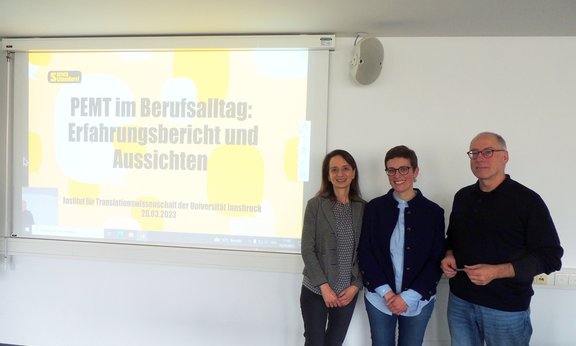
Ist Post-Editing (PEMT) die Zukunft des ÜbersetzerInnenberufes?
Am 20. März 2023 fanden am Institut für Translationswissenschaft (INTRAWI) Gastvorträge zum Thema Post-Editing of Machine Translation mit Cristina Plaza-Lara von der Universität Málaga und Sara Grizzo aus München statt.
Related studies

English and American Studies (Bachelor)
Bachelor of Arts

Educational Sciences (Bachelor)
Bachelor of Arts

French (Bachelor)
Bachelor of Arts

History (Bachelor)
Bachelor of Arts


